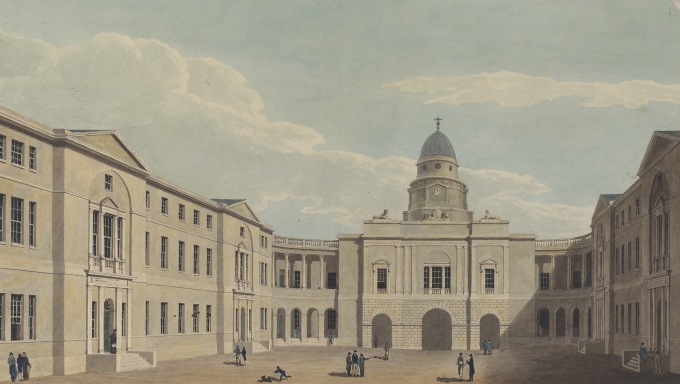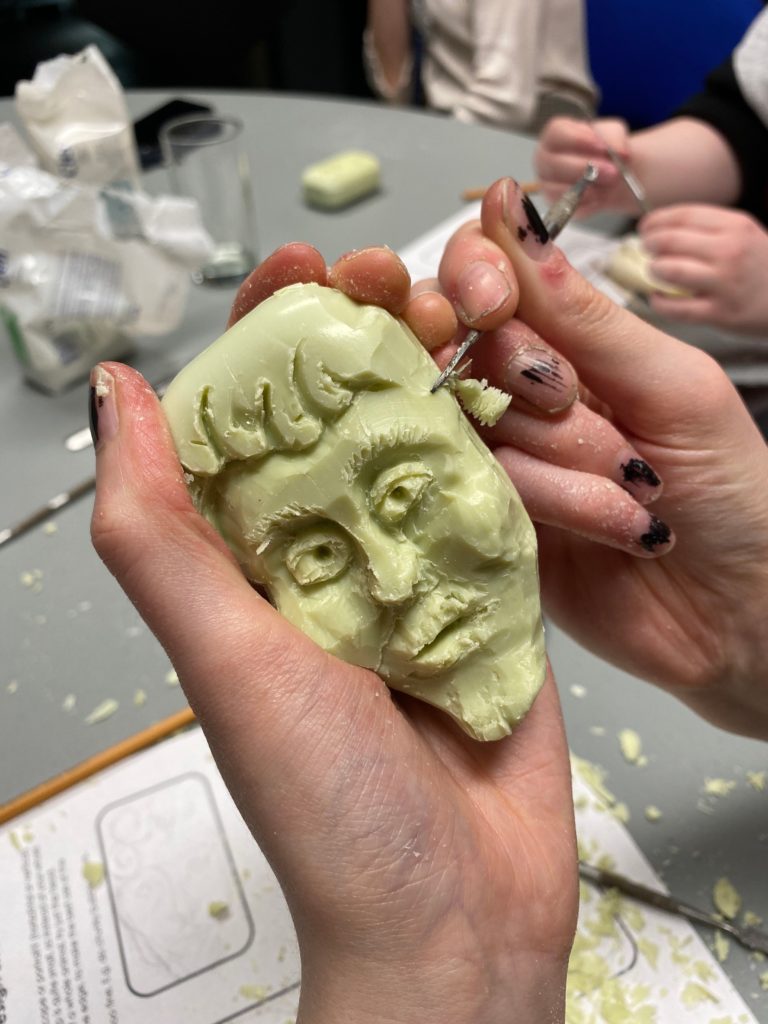Blog from Ruthanne Baxter (Prescribe Culture Lead) on the future of heritage.
Shared in the lead-up to The Heritage Alliance’s Heritage Debate 2022: Heritage in 20 years.

Heritage in 20 Years: what will matter most?
In 2042, I believe, a top priority for the heritage sector will be maintaining support for the NHS, mental health services, public health campaigns, relevant health, and care charities.
At the time of writing this blog, the daily headlines in Scotland included one that ran, ‘Scotland’s doctors urged to prescribe gardening and cooking’, as the Scottish Government was called upon to adopt a national strategy for social prescribing.
Heritage engagement can be included in the range of non-clinical options for tackling health inequalities and reducing prevalence of social determinants of poor health. I have witnessed the power of heritage engagement for reducing the impacts of loneliness, stress and anxiety on university students and community members through Prescribe Culture programmes such as Programme 6 and Take 30 Together Virtual.

In twenty years’ time, the heritage sector should be working effectively and efficiently, within regional health and social care partnerships, across the UK. In this alliance, heritage will be contributing, in a sustainable manner, to preventative public health initiatives, providing tried, tested and reliable heritage-based social prescriptions and offering non-clinical personalised care options, improving and expanding choice available to patients requiring support from early interventions through to palliative care.
To create a firm foundation for all of the above, we will need robust interdisciplinary evidence of the positive impact of heritage health interventions and a heritage sector with a workforce that includes specialists trained and experienced in co-designing health interventions with those with lived experience, and their support network. We will be able to develop and deliver quality assured intervention programmes and resources as well as designing a myriad of training pathways to reflect the diversity of need and circumstance when aligning with health and social care.
Successful personalised care and social prescribing are relationship-based. Outcomes of the heritage in health intersection relies on trust. Most readers here know the ‘doctor-patient’ relationship, when underwritten by trust, makes an enormous difference to responding to advice and taking action for improvement. One of the key actions the heritage sector needs to undertake is ensuring primary care professionals, Community Link Workers and allied health charities trust us. A number of factors are required to bring this into being, all of which take time and patience. These include getting right into the heart of health and social care and understanding the pressures, the restrictions, the complexity of those we wish to help. A good starting place for this is to join a local or national social prescribing network or get in touch with your local health and social care partnership. Scotland has the Scottish Social Prescribing Network, open to all those in social prescribing community.
Working with heritage in an academic institution I prioritise supporting the next generation of health and social care professionals understand non-clinical intervention. I work closely with the University’s schools of medicine, psychology and psychiatry, provide tutorials on the Critical Public Health course, offer Creative Health placements and am the Scotland rep for the Personalised Care Interprofessional Education Group UK.

– Ruthanne Baxter, Civic Engagement Manager/Prescribe Culture Lead, University of Edinburgh Heritage Collections.
All images in this article are from the Historic Environment Forum.

Explore other perspectives on ‘Heritage in 20 Years: what will matter most’ over on our event page for Heritage Debate 2022.
